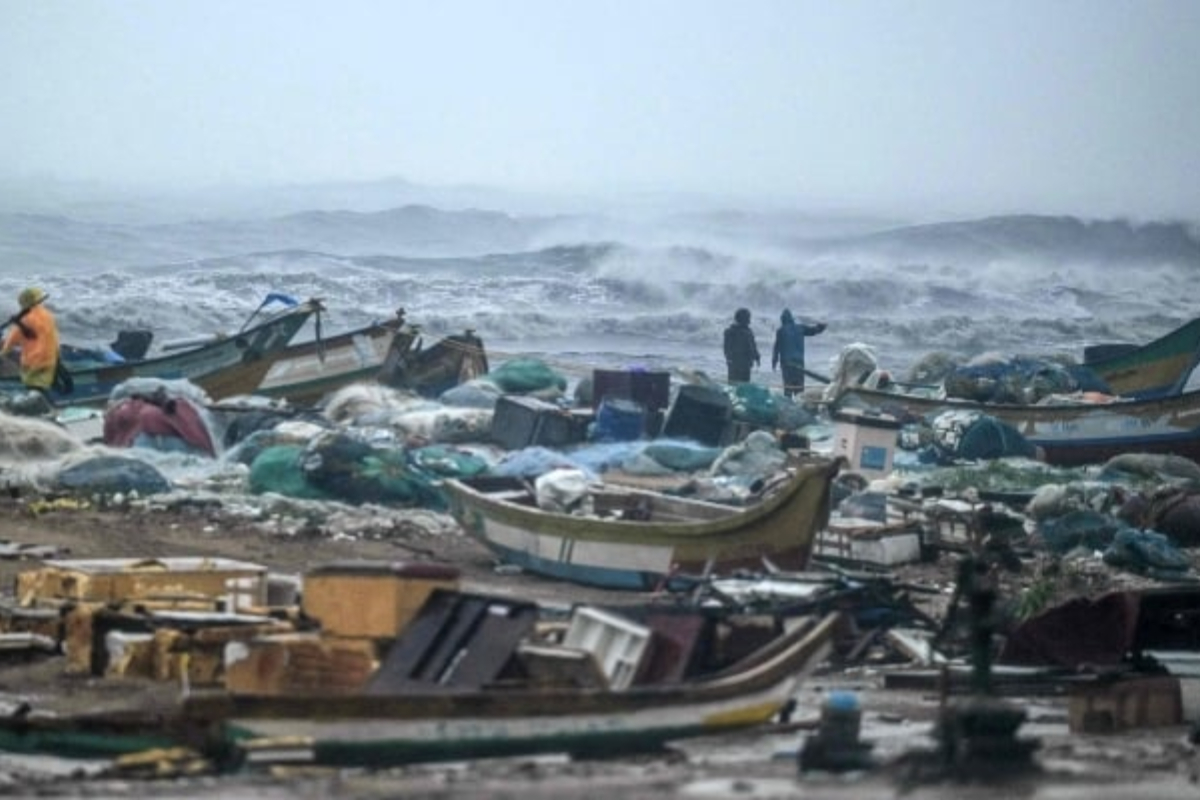A weak cyclone that hit India’s southern coastline has caused the deaths of at least three people, but there was not much damage overall, officials reported. Cyclone Fengal made landfall on Saturday night with winds of 70-80 km/h (43-50 mph).
Three people were electrocuted in Chennai, Tamil Nadu, due to the storm, according to the state’s disaster management minister KKSSR Ramachandran. However, the damage was described as “minimal.” Death toll could be four and mentioned there was flooding and fallen trees, but nothing as severe as initially feared.
Cyclones, which are similar to hurricanes or typhoons, are a regular threat in the northern Indian Ocean. Although Fengal is expected to weaken into a depression by Sunday, India’s weather department warned of heavy rains in southern parts of the country. They also advised stopping fishing operations and said some areas face a moderate to high risk of flash floods.
Earlier this week, the cyclone passed near Sri Lanka, causing the deaths of at least 12 people, including six children. Scientists have warned that storms are becoming more intense because of climate change, which is driven by the burning of fossil fuels.
Warmer oceans release more water vapor, fueling stronger winds, and a warmer atmosphere holds more water, leading to heavier rainfall. However, improved forecasting and better evacuation plans have helped reduce the number of deaths from such storms.



















